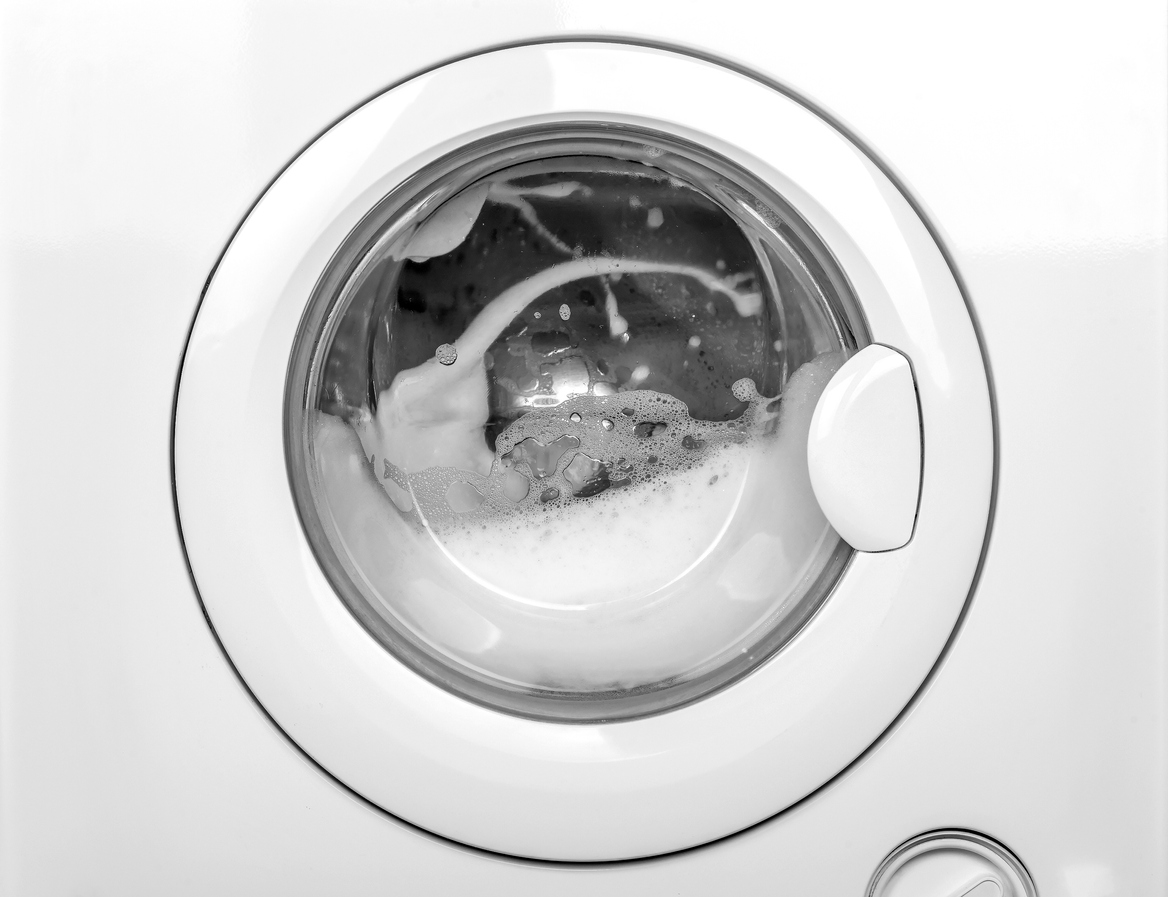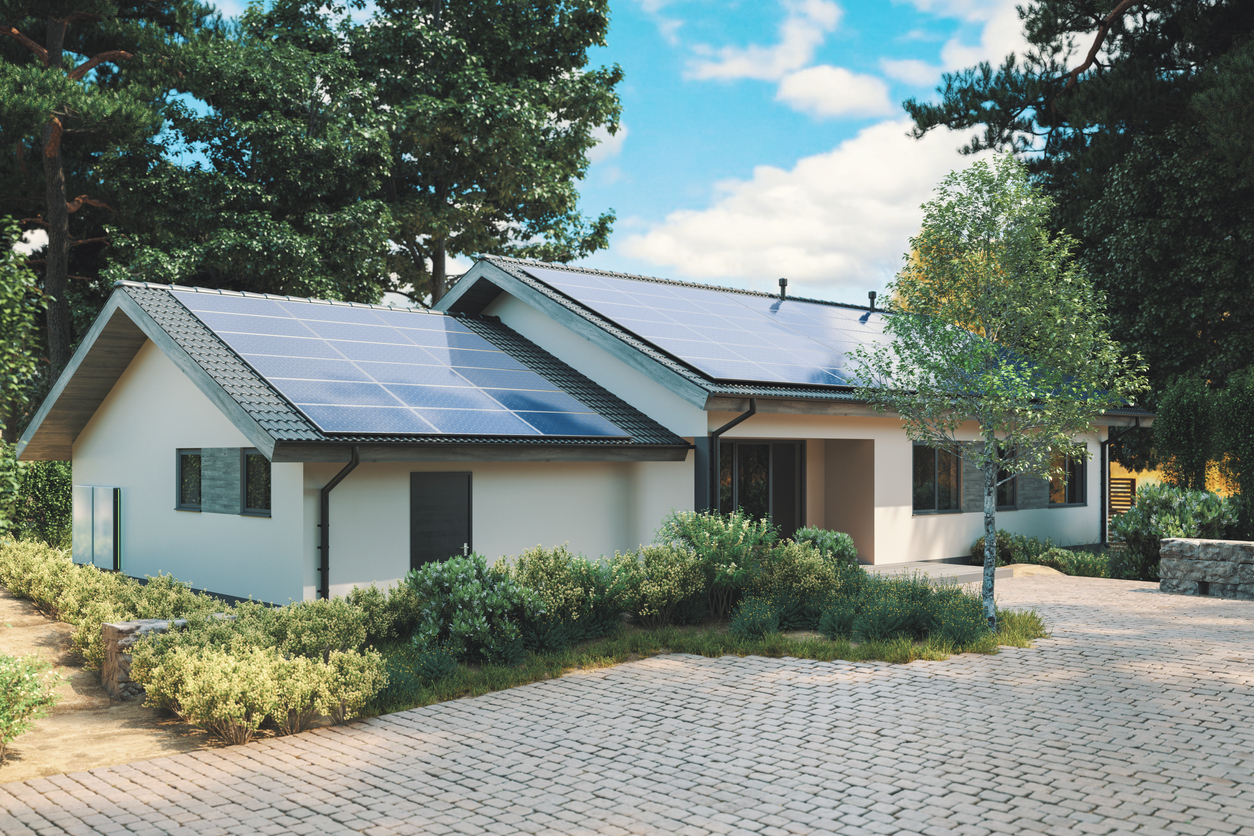Even the smallest changes can make the biggest difference in your electricity bill. Say goodbye to high utility costs with these top nine energy saving tips.
Start by tackling your heating and cooling costs.
1. Maintain and update HVAC equipment
How long has it been since you checked your HVAC’s air filter? Changing your air filter leads to cleaner, fresher air circulating through your home, and improves the efficiency of your HVAC system by allowing air to flow consistently while using less energy. Another option to decrease your heating and cooling costs is to upgrade your HVAC system. The Department of Energy says that even if your HVAC is only 10 years old, you could save 20 to 40 percent of your energy costs by replacing it with a newer, more efficient model. Energy Star lists efficient HVACs that can help you decrease your energy consumption.
2. Upgrade to programmable thermostats
The EIA found that more than half of energy used in homes is for heating and air conditioning. A programmable thermostat is a good solution to help any homeowner change the way they heat and cool their home. The Nest Thermostat lets you control your thermostat from anywhere, and program it to your specific needs and wants, making automatic changes according to the time of day or your current location. With this smart device, you can reduce heating and cooling expenses. Alternatively, check out the Ecobee smart thermostat.
3. Seal your home’s envelope
Your home’s building envelope separates your living space from the outside world. A leaky envelope allows heated and cooled air to escape, using more energy and costing you more money. The most effective way to seal up your home’s envelope is insulation. According to the EIA, one reason the average annual energy use per home has declined is improvements in building insulation and materials in recent decades. Poor insulation makes your heating and cooling systems work harder, using significantly more energy than necessary. Spray foam and cellulose insulation are safe and effective methods for insulating your home and saving you money. A quick fix for air leaks around your home is to caulk any open gaps around windows or doors.
Next, take these steps to control the biggest energy hogs in your home.
4. Rethink your laundry
About 90 percent of the energy required to operate a clothes washer goes into heating the water. By switching your water temperature setting from hot to cold, you can cut your energy use by more than half. When drying your clothes, a lower heat setting uses less energy. Try setting the dryer to a lower heat setting and running it for a longer period of time. Or skip the dryer altogether and hang your clothes up to dry. These small changes can have a big impact on your monthly electric bill.

5. Reduce hot water use overall
You can save on your electric bill by just lowering the temperature of your water heater. If your temperature is set too high, around 140℉, the hot water heater can waste anywhere from $36 to $61 annually. However, the biggest savings can come from reducing your overall hot water usage. On average, the clothes washer uses 25 gallons of hot water per use, the shower uses 10 gallons, and the dishwasher uses 6 gallons. By washing your clothes in cold water, taking shorter showers, and only using the dishwasher when it’s completely full, you could save significantly on your electric bill.
6. Turn off the lights
Turning off the lights when you’re not using them saves energy and your electric bill. With less efficient light bulbs like incandescents, it’s important to turn off the lights if you’re not in the room, or take the next step of swapping out incandescents and replacing them with an LED light. With more efficient lights such as CFLs and LEDs this general rule of thumb comes into play: If you will be out of a room for 15 minutes or less, leave it on. If you will be out of a room for more than 15 minutes, turn it off.
7. Discover hidden energy wasters
Each house can have a variety of different energy hogs, ranging from old TVs to second fridges, which is why it’s useful to find out what is using energy in your home. Start with a walkthrough of your home with the Sense Home app and turn things on and off so Sense can identify how much energy each device is using at that moment. Over time, Sense will discover more energy hogs that could be hiding in your home.
You’re well on your way to reducing your utility bill, but to go even further, take these steps.

8. Use the sun
Solar panels are advanced technologies to help you save energy. Solar technology turns sunlight into electrical energy to power your home. While the upfront cost can seem daunting, you are essentially paying today for the electricity you’ll use over the next 25 years. Solar panels have low maintenance costs, and many environmental benefits. Consider investing in your home with free energy from the sun!
9. Step up to smart technology
Smart plugs that track electricity usage are the perfect gadgets for saving energy in your home. They plug into the existing outlets in your wall so you can control your energy usage from anywhere and can be set on an automatic timer to optimize efficiency. Some brands of energy aware smart plugs can be tracked and controlled in the Sense Home app.
Manufacturers say that smart glass windows can save you about 20 percent on your energy costs monthly. Smart glass windows use advanced technology to insulate your home and block light. Technology in the glass film and coating is activated by a small amount of electricity, which then changes the appearance and function of the glass. The window settings can be changed to alter privacy, heat, or light to fit your home’s exact needs and save you energy when heating and cooling your home.
Smart home energy monitors like Sense give you real time data on what is using energy in your home, empowering you to save money and reduce your home’s carbon emissions. In the Sense Home app you can tell when the dishwasher was turned on, if the dryer has finished its cycle, or even the last time the garage door was opened. This smart device can also help you detect energy vampires and hogs that may be lurking, giving you more insight about the energy in your home. Sense can save you money, while helping you take control of your energy.
This article was researched and written by Samantha Malley, a summer 2022 intern at Sense who is a rising junior at Brandeis University.
